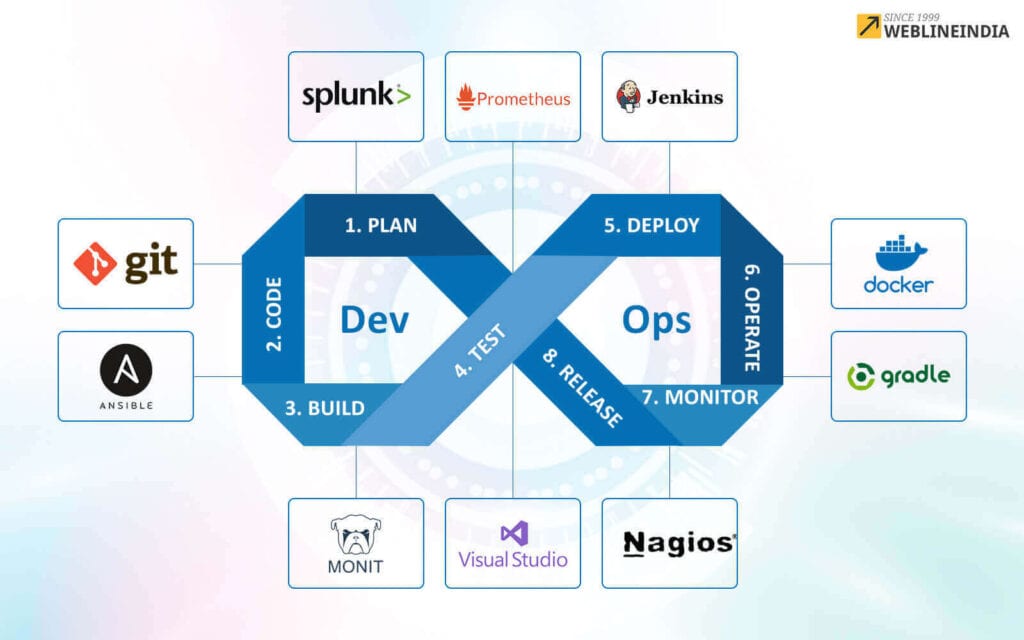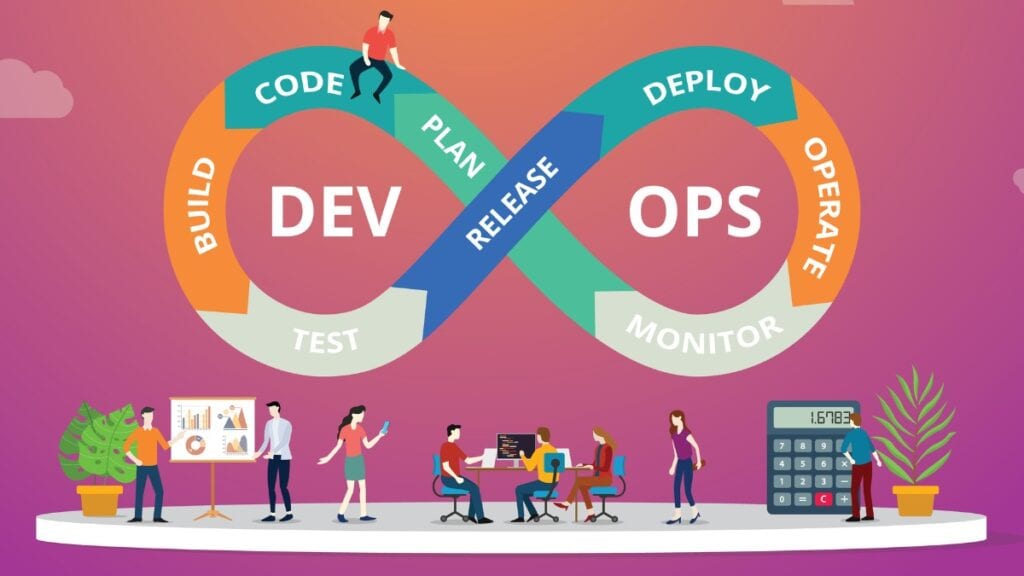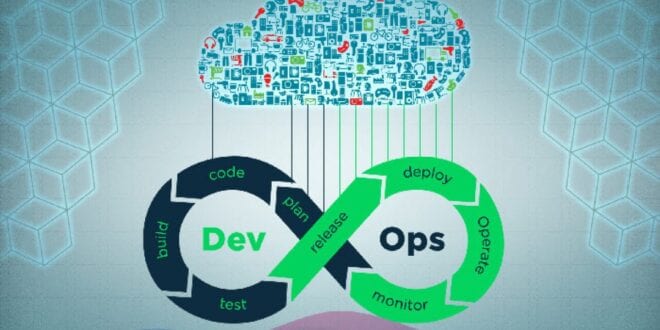Agile development methods allow for an increased understanding of how valuable collaboration is in the world of software development. Within a software development company, such as BairesDev, the walls between development and business teams have fallen as they worked more closely together throughout the Agile methodology. Organizations who implemented this method saw positive results and an improved success rate in the development of higher quality products.
However, most companies have already started to realize there’s another barrier preventing them from achieving success in development: the disconnect between the teams responsible for the actual development and those who are in charge of managing ongoing support for it. This issue spurred the invention of DevOps.
What is DevOps and Why Do Companies Need it?

Many people believe that DevOps is a particular methodology or suite of tools, but that’s not the case. Considered a company culture, DevOps helps enable a seamless process of coordination amongst many different teams throughout the full software development cycle. DevOps brings together two of the most critical teams in this process, development, and operations, throughout the entire life cycle of building, releasing, and maintaining a software product.
DevOps empowers and encourages companies to collect feedback from an array of sources, including programmers, executives, and customers, and use it to develop actionable strategies. This has become the key to improving outcomes for organizations while promoting collaboration across the office.
As trends come and go and technology advances further, companies are facing even stiffer competition – and they must do their best to outrank them in order to be successful. For a software or application development company, this means releasing features fast while also gaining insights about what does and doesn’t work for their company.
Organizations that embrace DevOps throughout their production cycle incorporate agile practices while eliminating bottlenecks in the process.
The Benefits of DevOps in Software Development

The main goal of incorporating DevOps into software development is the reduction of conflicts. These come up when developers focus on meeting demands to add functionality while improving usability. Operations teams, on the other hand, focus on the stability and security of the product.
It helps bridge this disconnect between the two teams by educating developers on the operational responsibilities and teaching operational professionals how to serve business needs in a smarter, faster way. A much more customer-focused culture emerges with the deployment of DevOps as there is a better universal understanding and alignment of priorities across both teams.
Tips for Incorporating DevOps

DevOps helps provide companies dealing in software production with the power and knowledge to enhance their processes and delivery, but it can be a little challenging to implement this strategy in an existing business. Below are a few tips to help get things started.
- When it comes to change, it is always best to start small and make iterative changes or improvements. Company leaders should look out for potential resistance to change and manage this proactively. Successes should be celebrated and made a standard part of the methodology as well.
- It is best that the operational stakeholders’ involvement in software product creation starts as early as possible. They should define the non-functional requirements and identify activities such as training to prepare for the necessary ongoing support. These team members require early and repeated engagement to identify and estimate operational activities for the entire duration of the project, sprint, or phase.
- Teach product owners, project managers, and analysts about operations and support from a high-level. They need to know what to consider as they elicit and define project aspects. Each team member should be provided with an understanding of the deployment timeline, processes, and phases to improve communication and general knowledge for future reference.
- On the opposite end, the team members need to understand the operational processes and choices in the process as well. Developers, business analysts, and testing professionals alike should take part in operational and support activities to gain a full understanding of what goes into the creation cycle as a whole.
- Define and fully test non-functional requirements as early as possible. A failure to identify issues related to areas such as performance, security, and scalability could have devastating issues over time. A snowball effect in one of these areas will increase timelines and raise costs required to fix them. Operational stakeholders need to have ownership of non-functional requirements and ensure their successful delivery.
When all team members fully understand and align on priorities and processes throughout the process of software development, production of a better product occurs while saving time, money, and stress along the way.
What do You need to know about DevOps?

There is no denying the fact that it has, nowadays, emerged as the mainstream aspect in the world of Software Development. Companies are all effectively shifting towards this technology to leverage the industry of software development. It seems like you cannot achieve anything in the industry if you are not versed in it. The adoption of it is increasing rapidly, and it was initially adopted in the year 2018. It is since then that the technology industry has faced considerable evolution.
- DevOps has made it mandatory for the testers to learn to code, or else they can vanish soon from the industry.
- Several Companies are anticipated to opt for the enterprise version since they are expected to have more capacity than what they had before.
- The world is slowly shifting its focus to automate everything, it merely means that automation will be the primary focus of businesses
- There is progress towards adopting a microservices architecture.
A promising way to Introduce Apps to the Market

Programmers are guided by Devops to utilize technologies in such a way so that their workflow enhances. Development teams are learning varied practices and leveraging available resources that help to promote successful collaboration. This technology is focussed more on enhancing the abilities of software programmers.
DevOps procedures and tools are believed to entrust developers with a creative process that is more agile and the objectives are driven according to the objectives of the entire team. DevOps helps the programmers to deliver stable builds, enhance how companies are responding to market demands, and cut costs significantly.
DevOps Unites People, Process, and Technology

New Values are released by the organizations for their consumers faster than ever before. It is now possible because of DevOps. The system has helped to strengthen people, technology, and procedure as a whole. When these aspects are combined together, inventions are acquainted rapidly. At the same time, it assures that the energies of humanity and devices are not wasted, and enable creators to concentrate better on the processes that are expected to be accomplished around digital innovations.
Developers are not able to ensure the integrity of new releases and automated release procedures without the help of DevOps. Also, scaling innovations in software development are also greatly tougher.
DevOps has considerably assisted in making the IT infrastructure resilient, diverse, easily tested, reliant, on-demand, etc. Digital changes are enabled with the help of safer and abrupt modifications to software aids and applications. It significantly helps to enhance operability. DevOps, when implied in enhancements, make sure that every essential change is made to create and deploy a system that is driven on code. It assists a company to rapidly respond to the shifting market circumstances and work towards finding better solutions.
The Bottom Line
In today’s rapidly changing competitive landscape, leaders continue to struggle to release products quickly to market without compromising in some way. Moving to a DevOps-based methodology or process drastically changes and enhances the software creation process to help companies deliver better products in a shorter timeline.
 Imagup General Magazine 2024
Imagup General Magazine 2024



